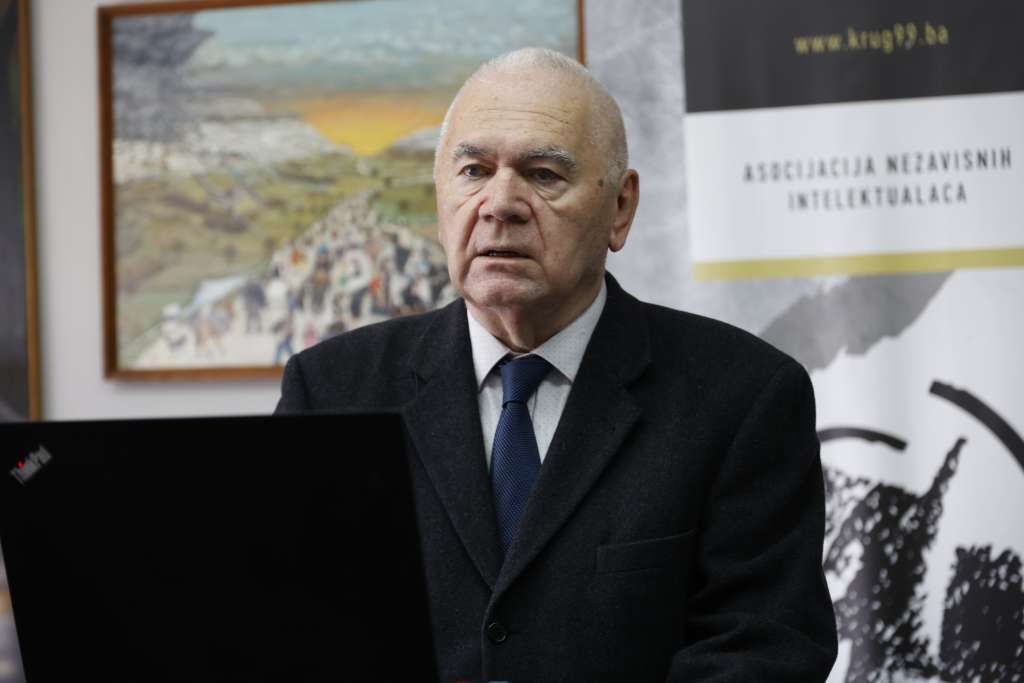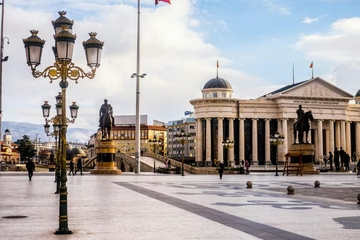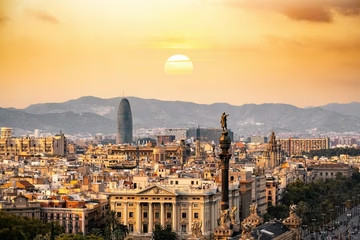
Bosnia can achieve a natural and moral right to the future of a free state only if it remains Bosnian. Bosnia has been a historical, cultural, political, economic, multi-ethnic, multi-religious, democratic, and human reality for more than a millennium, whether some like it or not. These were the key messages from today’s session of the independent intellectual group Circle 99 on the topic "Right to the Future: Bosnia is Bosnian!" in honor of November 25th, Bosnia and Herzegovina's Statehood Day.
Oglas
Circle 99 President Adil Kulenovic announced that they would hold a series of conventions on the same topic across other regions in Bosnia and Herzegovina in the coming period.
Kulenovic highlighted a recent discussion at the European Court of Human Rights in the Kovačević case, condemning the scandal of anti-Bosnian forces appearing as opposing sides while pro-state options failed to counteract at an international level.
He pointed responsibility towards the Human Rights Minister Sevlid Hurtic and noted that those who appointed him must also bear responsibility for undermining all Bosnian citizens. Kulenovic also criticized the lack of engagement by Bosnia’s Ministry of Foreign Affairs in this case.
Professor Senadin Lavic from the Faculty of Political Sciences in Sarajevo reminded attendees of the First Session of ZAVNOBiH on November 25, 1943, in Mrkonjić Grad, where Bosnia’s statehood was restored. He stated that this event was crucial to Bosnia's historical journey, making it a sovereign political entity within Yugoslavia despite opposition from nationalist ideologies.
Lavic emphasized that today, the ZAVNOBiH idea has evolved into a European democratic model of governance and inclusion in the EU, upholding human rights and freedoms.
Professor and former rector of the University of Zenica, Enver Halilovic, spoke about the distinction between statehood and being a state, arguing that while political entities might possess elements of statehood, they are not equal to sovereign states.
He also criticized the ethno-national profiling of Bosnia, suggesting that only civic governance could prevent divisions among citizens based on cultural and other differences. Halilovic said Bosnia’s only viable constitutional and political definition for a peaceful and prosperous future lies in it being "Bosnian," a state of equal citizens, regardless of any collective identity.
Azra Zornic, an applicant before the European Court of Human Rights, pointed out the irregularities in the Kovačević case, including a questionable donation by Croatia to the court, which she suggested might have been intended to influence the ruling.
Zornic emphasized that such practices should be investigated, adding that Croatia’s anti-corruption bureau, USKOK, might also look into it, as the European Court should not receive any donations. She also raised questions regarding the payment for an expensive lawyer from Blackstone’s law firm, which represents another issue that must be addressed.
Kakvo je tvoje mišljenje o ovome?
Učestvuj u diskusiji ili pročitaj komentare
Oglas
Kakvo je tvoje mišljenje o ovome?
Učestvuj u diskusiji ili pročitaj komentare
Oglas





 Srbija
Srbija
 Hrvatska
Hrvatska
 Slovenija
Slovenija



























































